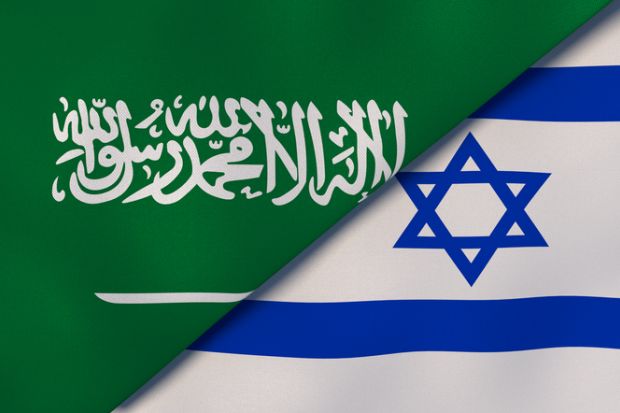A Saudi scholar has made history by publishing an article, written in Hebrew, in an Israeli academic journal.
¡°Contribution to Prophet Muhammad¡¯s Image Improvement in the Eyes of the Israeli Public¡± has just appeared in Kesher, which is published by Tel Aviv University¡¯s (TAU) Shalom Rosenfeld Institute for Research of Jewish Media and Communication.
Its author, Mohammed Ibrahim Alghbban, head of Near Eastern languages and civilisations and Hebrew studies at King Saud University in Riyadh, had met Kesher¡¯s editor, Gideon Kouts, at academic conferences and when the latter paid a visit to Riyadh in 2015.
He then submitted his first article in Hebrew, examining Muhammad¡¯s correspondence and alliances with the Jews of the Arabian Peninsula, in order to challenge some commonly held views head on.
ÁñÁ«ÊÓƵ
¡°Erroneous assumptions about the origins of Islam,¡± he writes, ¡°led to a distorted understanding of manuscripts, wrong methodology and negative influences on Hebrew-speaking Middle Eastern Studies researchers.¡±
It was wrong to ¡°accus[e] Islam and the Prophet Muhammad of hate speech and racism against Jewish tribes in Hejaz¡±, a region now in western Saudi Arabia, since ¡°Muhammad treated equally all social groups in...places under his control, regardless of race and religion¡±.
ÁñÁ«ÊÓƵ
Part of the problem, according to Professor Alghbban, was that Muhammad¡¯s letters to Jewish tribes in the Arabian Peninsula and records of alliances with them had hitherto been translated into Hebrew badly or not at all ¨C something his new article attempts to put right.
It remains to be seen whether this argument convinces either ¡°the Israeli public¡± or Israeli academic experts in early Islam.
While a single article was unlikely to transform views on its own, suggested Raanan Rein, vice-president of TAU, this one not only had a ¡°symbolic importance¡± but would ¡°hopefully initiate a substantial dialogue around Jewish-Muslim relations, challenging commonly held notions¡± and perhaps even represent ¡°another step towards economic and political cooperation¡±.
Furthermore, at a time of increasing calls in Saudi Arabia and among the Arab League to use inter-religious understanding to help build peace with Israel, Professor Rein ¡°strongly believe[d] that universities should serve as a bridge to dialogue and help in offering multiple perspectives on contemporary issues. Unlike [contemporary] politicians, who often build walls and avoid dialogue, our commitment includes, among other things, the fostering of a better understanding among different national, ethnic and religious groups.¡±
ÁñÁ«ÊÓƵ
While TAU has ¡°joint initiatives with Palestinian and Jordanian institutions¡±, it currently had none with any Saudi equivalents and he would ¡°welcome any such collaboration, be it around the three Abrahamic religions¡± or in other fields.
Register to continue
Why register?
- Registration is free and only takes a moment
- Once registered, you can read 3 articles a month
- Sign up for our newsletter
Subscribe
Or subscribe for unlimited access to:
- Unlimited access to news, views, insights & reviews
- Digital editions
- Digital access to °Õ±á·¡¡¯²õ university and college rankings analysis
Already registered or a current subscriber? Login








